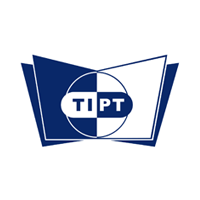
Universal pharmacare differs from universal healthcare. With universal healthcare in Canada, coverage ends for many patients once they have been given a prescription. Universal pharmacare would offer a program where prescribed pharmaceuticals are accessible to all Canadians, in addition to other health services.
As someone looking towards a career in the pharmaceutical industry, you may be interested to learn more about this hot-button issue that affects patients and their access to medicines. Read for more about universal pharmacare and what you might want to know if you are working in the industry.
How a Universal System Would Function in Canada
A national pharmacare program would work as a universal, single-payer system. In a single-payer system, coverage is financed by taxes and operated by a single, public system. Health Canada stated in a release in June, 2019 that the current systems that differ between provinces and territories are not sustainable overall.

The federal government’s Advisory Council on the Implementation of National Pharmacare recommended a universal pharmacare system, noting that this would provide access to medication for Canadians who are underinsured. They also cited savings due to better power in negotiations, less administration required and lowered costs for businesses that provide drug coverage. Many people in pharmaceutical careers are passionate about getting treatment to people who need it and will likely be following the development of a national pharmacare plan closely.
Could Canada Benefit from Universal Pharmacare?
Pharmacare currently varies in Canada by province. Often, provinces provide coverage based on population groups that require more pharmaceuticals. Medication costs Canadians a great deal of money, with our country having the third-highest drug prices in the Organisation for Economic Co-operation and Development (OECD).
Patient compliance is reduced when drugs are too costly, as patients either cannot afford their drugs or are unwilling to pay for them. When patients are not properly taking their prescribed drugs, their health can worsen or conditions can advance, putting more people in further treatment that is costly to the healthcare system. In this way, many people say that universal pharmacare would save money overall for the healthcare sector of Canada.
Of course, a universal pharmacare program is not supported by everybody. Some critics say that setting up such a program would cost too much money upfront and doubt that it would save money over time. Plus, there are disagreements over how much of it would be funded by the federal government versus the provinces.

Advantages of a Pharmaceutical Career under Universal Pharmacare
As a professional with a pharmaceutical technology diploma, you will be well-versed in maintaining Good Manufacturing Practices (GMPs), proper procedures, sanitation and maintenance, all of which preserve integrity in pharmaceutical products. Getting the right products on the market under the proper conditions is an integral part of providing effective treatments for patients.
A universal pharmacare program goes hand in hand with this. A more centralized system where patients have access to medicine, regardless of income, puts treatment into the hands of more people who need it. This improves health outcomes and potentially saves Canadians and businesses money with a lowered need for private drug insurance. As pharmacare becomes a hot topic in the media, it will be interesting to see where the debate leads.
Are you interested in pharmaceutical technology courses?
Contact TIPT for more information.
